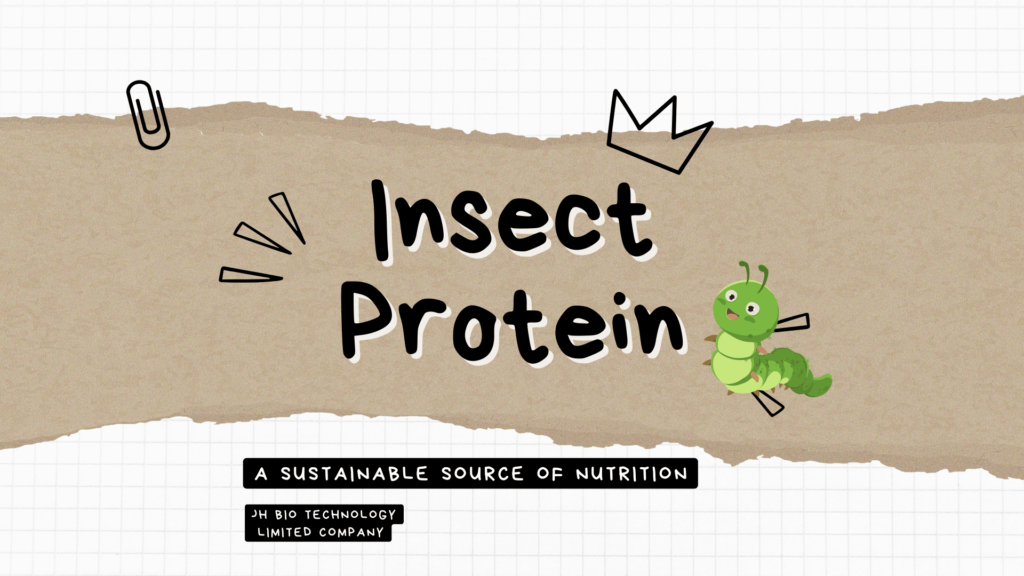Insect Protein: A Sustainable Source of Nutrition
Table of Contents
Insects have been eaten as a source of nutrition for centuries in various cultures around the world. However, it is only recently that insect protein has gained attention as a sustainable alternative to traditional livestock like chicken, beef, and pork. With the growing concern over sustainability and food security, insect protein has emerged as a promising solution to address these global issues.

What is Insect Protein?
Insects are a diverse group of animals that are often overlooked as a food source. They are high in protein, vitamins, minerals, and healthy fats, making them an excellent choice for nutritious meals. Some species of insects can contain up to 80% protein by dry weight, compared to only 20% in beef and 18% in chicken. Insects are also environmentally friendly, requiring significantly less water and feed compared to traditional livestock.
Sustainability Benefits of Insect Protein
Insect protein has several sustainability benefits that make it a valuable alternative to traditional sources of animal protein. Firstly, insects have a much lower environmental footprint than livestock. For example, crickets require six times less feed to produce the same amount of protein as cattle, and they emit significantly fewer greenhouse gases. Insects also have a shorter lifespan, which means they require less land space for breeding and rearing.
Moreover, insect farming has a low impact on water resources. It takes 2,000 gallons of water to produce one pound of beef, compared to only one gallon to produce one pound of cricket protein. This makes insect protein a more water-efficient source of nutrition, crucial in areas where drought and water scarcity are major concerns.
Food Security Benefits of Insect Protein
Insect protein has the potential to improve food security globally, especially in developing countries where access to traditional sources of animal protein is limited. Insects are abundant and can be found in almost every region of the world, making them an easily accessible food source. Additionally, they require minimal resources to farm, which means they can be produced locally and reduce dependence on expensive imports.
Insects are also highly nutritious, providing essential amino acids, vitamins, and minerals that are crucial for a balanced diet. For instance, crickets are rich in iron, calcium, and vitamin B12. This makes them a valuable source of nutrition for populations that are at risk of malnutrition or nutrient deficiencies.
Functional Benefits of Insect Protein
In addition to its sustainability and food security benefits, insect protein also has functional advantages over traditional sources of animal protein. For example, cricket flour can be used as a gluten-free alternative in baking, making it a suitable option for individuals with celiac disease or gluten intolerance. It also has a neutral taste, allowing it to be easily incorporated into various dishes without altering the flavor.
Moreover, insect protein has a higher protein content per gram compared to traditional meat sources like beef or chicken. This makes it an attractive choice for athletes and fitness enthusiasts looking for high-quality, easily digestible protein sources.
Environmental Benefits of Insect Protein
Insects have a much smaller environmental footprint compared to traditional livestock. They require significantly less land, water, and feed to produce the same amount of protein. For instance, crickets need six times less feed than cattle and emit fewer greenhouse gases.
Furthermore, insect farming can also contribute towards reducing food waste. It is estimated that around one-third of all food produced globally goes to waste. Insects can be fed on organic waste, reducing the amount of food that ends up in landfills and producing valuable protein in return.
The Future of Insect Protein
Insect protein has been gaining popularity in recent years as a sustainable and nutritious alternative to traditional animal protein sources. Companies are now investing in research and development to improve insect farming practices and increase the variety of insects used for protein production.
Insect-based food products, such as protein bars and snacks, are also becoming more readily available in the market. As consumer demand for sustainable food options continues to rise, the future looks bright for insect protein as a viable and eco-friendly choice.
Conclusion
In conclusion, insect protein offers numerous benefits, both for our health and the environment. Its high nutritional value, low environmental impact, and potential to reduce food waste make it a promising solution for sustainable food production. As we continue to explore innovative ways to feed our growing population, insect protein may just be one of the key ingredients in creating a more sustainable future. So next time you see an insect, don’t be afraid to consider it as a potential source of protein. After all, it’s just nature’s way of providing us with a nutritious and eco-friendly option. So go ahead and take a bite! Let’s embrace the power of insect protein for a healthier planet.
About Company

superworm.Mealwormpowder,BSFpowder,superworm powder.
Mealworm defatted powder, BSFdefatted powder,Corn protein powder etc.
Contact info
latest news
Participate in 2023 Henan Insect Feeding Summit
We strictly adhere to the mealworm breeding code
We updated our processing equipment in 2019
Professional mealworms cooling store warehouse
